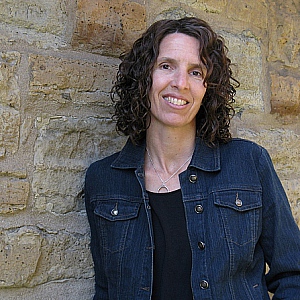Dyadic Developmental Psychotherapy (DDP) can help children who have been hurt and/or neglected within their families in their early years. Children can be traumatized by these experiences and find it difficult to feel safe and secure within their new families. Dyadic Developmental Psychotherapy has been developed by Dan Hughes over the past twenty years. It is based on a theoretical understanding of attachment and intersubjective relationships; and the impact of developmental trauma. In DDP the therapist helps the child's relationship with its parents/caregivers. He does this by talking with the child using an affective-reflective (a-r) dialogue. This is a conversation that involves feeling as well as thinking. The therapist explores all aspects of the child’s life; safe and traumatic; present and past. The therapist and parents’ intersubjective experience of the child helps the child get a different understanding. This becomes integrated into her autobiographical narrative. This in turn becomes more coherent.
In this way the child experiences healing of past trauma and achieves safety within current relationships. The conversations and interactions (verbal and non-verbal) within the therapy room are all based upon PACE. This means that the therapist will be Playful, Accepting, Curious and Empathic. The therapist will talk in a way that is like telling a story rather than giving a lecture. Dyadic Developmental Psychotherapy therefore involves the child and parents working together with the therapist. The child gains relationship experience which helps her to grow and heal emotionally. Family members develop healthy patterns of relating and communicating. This in turn leads to a less feelings of fear, shame or need to control within the family. Family members become open to each other’s inner life as well as their outward behaviour. The child is helped to respond to current experience and memories of past experience flexibly instead of through rigid and repetitive responses.
We organize this masterclass training with the DDP Institute and are excited that this edition will be hosted by 2 trainers with Dutch roots, Michelle Hogeterp and Betty Brouwer. This training will be in English.
Programme:
Day One: Overview of model
- Introduction to DDP
- Theoretical foundations Theory, research and links between attachment, the impact of trauma and interpersonal neurobiology
- Intersubjectivity theory
- Introduction to the principles of therapeutic intervention, effective communication and parenting
- The role of PACE in communication
- Affective-Reflective dialogue
- Making sense of behaviour
- Steps toward parent-child communication
- Understanding shame, fear and rage
- Helping children create coherent narratives about their life
- Working with resistance
- Trying not to problem solve before connection’s have been made with, and between, child and parent or caregiver
- Assessing parents and caregivers
- Engagement with parents. Establishing and maintaining a relationship
- Parental work, both as a stand-alone intervention and as preparation for therapy with the parent(s) and the child together
- Parenting and providing care based on principles of attachment theory and research and what is known about the impact of trauma
- The importance of the adult’s own attachment history
- PACE for parents: How to help parents understand what PACE is, why it is helpful and how they can put “Parenting with PACE” into practice
- Venting: How to help parents who vent to communicate in more reciprocal ways
- The importance of understanding and addressing Blocked Care
- Working with parental difficulties in providing care
- Day-to-Day Parenting: Introducing a framework for parenting
- Day-to-Day Parenting: a framework for parenting
- Working with different client groups, populations and circumstances - Short term placements, residential care, birth families, individual children
- Working with other agencies - Relationships with other professionals, such as health, social services and educational professionals
Verder
Deze training valt onder de algemene voorwaarden voor bijeenkomsten zoals congressen en masterclasses en seminars (op locatie of online). Wij maken je erop attent dat bij annulering na de wettelijke bedenktermijn de volledige kosten verschuldigd zijn. Bij eventuele verhindering kun je iemand anders in jouw plaats laten deelnemen.


_resized300x300.jpg)